Even among fans, many of the discussions about Taylor Swift's songs revolve around her personal life; Swifties comb lyrics and videos for hidden clues to uncover which real person inspired each song. Curiosity is natural, and I haven’t always been immune to it, but I am no longer interested in any of that.
At this point, I am content with Taylor the persona, the fictional character I have known for over a decade, an autofictional person whose life loosely mirrors that of Taylor Swift. I don’t know ‘the real’ Taylor Swift — but I know Taylor Swift the phenomenon, having been part of it for over a decade alongside countless other fans.
I’ve always thought Taylor’s body of work to be parallel to the movie Boyhood: an artistic project of many years, comprising an episodic coming-of-age narrative about girlhood. It begins unselfconsciously, almost as a chronicle, then matures into a more thoughtful project, more nebulous and resistant to easy interpretation. The fact that it maintains the latter quality while playing on every radio is incredible to me.
The nostalgia is very real, and Taylor herself is embracing it with the Eras Tour, which begins today. As an international fan, I can’t go to the tour, so I gave myself a research project instead: to create a reading list where every Taylor Swift album (and era) is represented by a book that matches it in tone, atmosphere, or subject matter. Join me and maybe get inspired with new book ideas for yourself!
![]() 1. "Taylor Swift" and "True Beauty" by Yaongyi
1. "Taylor Swift" and "True Beauty" by Yaongyi
The eponymous Taylor Swift album was released in 2006. It’s an album all about being young and in awe, dreaming of being grown up and loveable. With its themes of teenage unrequited love, heartbreak, and finding your “place in this world,” this album definitely falls under Young Adult. You couldn’t pair a story that doesn’t partially unfold in high school hallways with Taylor Swift the album.
I’ll take that a step further, and suggest True Beauty by Yaongyi, a webcomic (also known as manhwa) about Jugyeong, a South Korean schoolgirl. Bullied and insecure, Jugeyong works on her makeup skills so she can transform herself into ‘someone beautiful.’ She begins to live a double life (geek who reads comic books at home, gorgeously feminine new student at the local high school), all the while dreaming of fame, of becoming a makeup artist, of meeting the eyes of the taciturn high school boy in her class. Like Taylor’s first album, it captures both the giddy joy and utter confusion of navigating life in high school.
Read True Beauty on Webtoon
![]() 2. "Fearless" (Taylor’s Version) and "Along for the Ride" by Sarah Dessen
2. "Fearless" (Taylor’s Version) and "Along for the Ride" by Sarah Dessen
With Fearless, we’re still in teenage territory. Eighteen-year-old Taylor recalls being fifteen and fearfully walking into high school on her first day, now telling herself that “in your life you’ll do things greater than dating the boy on the football team.” For the time being, though, dating the boy is what she wants, and this album is a sweet record of the highs and lows of teenage longing. It’s a little naive, but bursting with excitement about growing up, becoming who you’re going to be, and loving the person who will be right for you.
I think Fearless also needs a YA counterpart, and I’ve picked Along for the Ride by Sarah Dessen, an author I loved at thirteen, when I was listening to this album. Like young Taylor (“in my room, it’s a typical Tuesday night”), young Auden doesn’t feel like she belongs, and is reluctant to try new things, meet new people, or leave her room after her parents’ divorce. The summer before she heads off to college, Auden visits her dad on the coast. She meets a boy, of course, someone also carrying his burdens, and they spend the summer learning to open up and live, well, fearlessly.
Buy Along for the Ride on Bookshop or Amazon
![]() 3. "Speak Now" and "Brooklyn" by Colm Tóibín
3. "Speak Now" and "Brooklyn" by Colm Tóibín
When I think of Speak Now era Taylor, I think of a young woman attempting to go out into the world and see what’s beyond the horizon, still looking for sparks, but also deeply wounded, while being too young to understand the gravity of her own injuries. I see the Taylor of this album as looking both forward and backward, despite claiming she “left a small town, never looked back.” She’s eager to take the next step into the future but still drawn back by thoughts of home, family, and the past (think “take pictures in your mind of your childhood room,” “I just realized everything I have is someday gonna be gone”).
This movement away from home and the parallel inability to ignore its siren call leads me to Colm Tóibín’s Brooklyn, a novel about Eilis, a young woman who leaves her Irish hometown for New York. This is historical fiction, unfolding in the 1950s, but I see the innocence of Eilis as parallel to Taylor’s. I imagine them alone on their first nights away from home and feel great compassion for both of them — Eilis vomiting on the ocean liner across the Atlantic, Taylor switching off her nightlight in her cold new flat. Both characters try hard to find their feet in a world that’s new to them, homesick and unsure, hopeful and ever-striving.
Buy Brooklyn on Bookshop or Amazon
![]() 4. "Red" (Taylor’s Version) and "Acts of Desperation" by Megan Nolan
4. "Red" (Taylor’s Version) and "Acts of Desperation" by Megan Nolan
Red was an album about heartbreak, a breakup that kaleidoscopically refracts its legacy in multiple tracks. So many songs (“Red,” “State of Grace,” and from the vault of Taylor’s Version, “Ronan,” “Better Man,” and “Nothing New”) color how I feel about this album, but like many fans, I always return to “All Too Well.” Who can forget the image of Taylor (remember, the persona) and her boyfriend dancing by the light of the fridge in a night-time kitchen?
I can easily cast the protagonists of Megan Nolan’s Acts of Desperation into that scene. The novel inhabits a similar emotional space, though some darker streaks course through it: it’s about a young Irish woman entering a toxic relationship. She can sense the relationship is not good for either party, but feels both powerless to leave it and determined to empower herself by insisting on it. ‘Casually cruel’ can be applied to both characters in this book, and the retrospective self-awareness with which the novel is written from the young woman’s point of view makes it a particularly good fit for Red (Taylor’s Version).
Acts of Desperation does something that Taylor doesn’t in her new version of Red: it reflects openly on the protagonist's own questionable choices and the circumstances that led her there. To remain faithful to the original album, Taylor doesn’t do that in the re-recorded version, but the addition of further songs from the vault, and those final lyrics to the 10-minute version of “All Too Well” open a window into bitterness and regret that I think matches the novel incredibly well.
Buy Acts of Desperation on Bookshop or Amazon
![]() 5. "1989" and "Speedboat" by Renata Adler
5. "1989" and "Speedboat" by Renata Adler
1989 is an album of blazing optimism. Written when Taylor moved to New York, 1989 embraces big-city energy and dials it up to synth-pop levels. Though it insists that you can “shake it off,” the album partly deals with the claustrophobia of life in the public eye (media speculation, criticism, and rumors) and paves a way out by focusing on moments of genuine joy and meaningful connection. 1989 Taylor is dazzled by possibility, still struggling with failed relationships and external pressures, but finally able to experience catharsis (“Rain came pouring down when I was drowning, that's when I could finally breathe”).
For its fascination with New York and the endless reel of characters and episodes that comprise it, I’m matching 1989 with Speedboat by Renata Adler. It’s not a great tonal match, but Speedboat captures the variety and absurdities of New York through the eyes of young journalist Jen Fain.
Buy Speedboat on Bookshop or Amazon
![]() 6. "Reputation" and "Nightbitch" by Rachel Yoder
6. "Reputation" and "Nightbitch" by Rachel Yoder
Reputation sees Taylor get angry. Donning an Assassin’s Creed-style hood, this album thematizes doing bad things, making people unhappy, and holding on to grudges and resentment, damn it. It marks a real stylistic and sonic departure from the rest of her work, so I’m choosing a book that similarly relishes in being out of line (“They say ‘she’s gone too far this time’,” sings Taylor in “Don’t Blame Me”).
In Nightbitch by Rachel Yoder, we meet an artist and recent mother whose anger and resentment about her new circumstances as a stay-at-home mom simmer to a boil. Things take a turn for the surreal — first she discovers a patch of rough hair on the back of her neck, then she’s convinced her canines are growing sharper. “I think I’m turning into a dog,” she tells her husband on the first page, and he laughs her off. (If only husbands would learn from The Yellow Wallpaper!) Feeling unseen, exhausted, and confined, the Mother just wants to throw her head back and howl into the night. You can just see Reputation Taylor joining her.
Buy Nightbitch on Bookshop or Amazon
![]() 7. "Lover" and "Girl Meets Boy" by Ali Smith
7. "Lover" and "Girl Meets Boy" by Ali Smith
Probably the happiest of Taylor’s albums, Lover is about emerging from a cloud into the pastel hues of romantic joy. Lover also sees Taylor openly push for LGBTQ+ rights with “You Need to Calm Down,” chuckle about British expressions in “London Boy,” and speak solemnly about a loved one’s illness in “Soon You’ll Get Better.” It’s not all pastel, in other words, though the overall atmosphere of the album is one of celebration.
For that reason, I’m pairing it with Ali Smith’s Girl Meets Boy, a retelling of the Ovidian myth of Iphis and Anthea. This novel takes place in Inverness, in the Scottish Highlands, where sisters Imogen and Anthea are both trying to work out what matters to them and how they can best live authentically. The childhood stories they heard from their grandparents merge with Ovidian myth to create a fairy tale of queer romantic joy still anchored to a world of injustice and inequality. The book is written with humor and sharp political commentary, and champions the happiness found in fluidity and romance: “I had not known, before us, that every vein in my body was capable of carrying light, like a river seen from a train makes a channel of sky etch itself deep into a landscape.” Add to that the fact Taylor’s fondness for the UK, and we’ve got a match.
Buy Girl Meets Boy on Bookshop or Amazon
![]() 8. "Folklore" and "Hateship, Friendship, Courtship, Loveship, Marriage" by Alice Munro
8. "Folklore" and "Hateship, Friendship, Courtship, Loveship, Marriage" by Alice Munro
I remember the launch of Folklore through a pandemic fog. With its dreamy, slow thoughtfulness and its curiosity about a large cast of characters and their lives, I think Folklore has a strong short story vibe to it. The album’s attention meanders freely away from the self and into the forest of the world, telling the rumored story of “the last great American dynasty,” taking on the voice of seventeen-year-old James, who’s lost the girl he loves, and reaching the age of COVID, where a health worker recognizes their patients as “someone’s daughter, someone’s mother.” All of these stories are told with tenderness, curiosity, and compassion.
As a literary sibling to Folklore, I’m selecting Alice Munro’s Hateship, Friendship, Courtship, Loveship, Marriage, a short story collection that likewise studies a number of characters with tenderness and empathy. The first and titular story observes the way a cruel childhood game unexpectedly ends up changing people’s destinies. I think Taylor, with her belief that “a tale that becomes folklore is one that is passed down and whispered around” (from the foreword of Folklore), would appreciate it. Perhaps it’s an unlikely match, but this collection shows a deep and nonjudgmental understanding of its characters, which runs parallel to Folklore’s project of opening yourself up to receive the stories of humanity.
Buy Hateship, Friendship, Courtship, Loveship, Marriage on Bookshop or Amazon
![]() 9. "Evermore" and "Olive Kitteridge" by Elizabeth Strout
9. "Evermore" and "Olive Kitteridge" by Elizabeth Strout
Folklore’s sister album, Evermore, resembles it in ambiance. I consider it a mature Taylor album, and picture her on a small-town porch, knowingly watching the comings and goings from her rocking chair. She’s seen some things by this point, and been around long enough to hear the dead still speaking to her (“Marjorie” being my favorite song on this album), and to smile wryly at her listeners and say “long story short, I survived.”
For its small-town charm and worldly wisdom, I’m pairing this album with Olive Kitteridge by Elizabeth Strout. This is a novel told in disparate stories that all light the central character of Olive, a retired schoolteacher, from a different angle. Together, the stories amount to the portrait of a small town in Maine, and contribute to the idea that there’s more to people than our first impressions and assumptions. I imagine Olive and Marjorie (Taylor’s grandmother) joining Taylor on that porch, the three of them having a grand old time.
Buy Olive Kitteridge on Bookshop or Amazon
![]() 10. "Midnights" and "Five Tuesdays in Winter" by Lily King
10. "Midnights" and "Five Tuesdays in Winter" by Lily King
Taylor has described the tracks on Midnights as the stories of 13 “sleepless nights.” A dark, late-night undercurrent runs through the songs: thoughts of worst-case scenarios, fears, anxiety about being weird, about her legacy (e.g., when she imagines her future descendants fighting over her money after her death), about making mistakes.
At the same time, midnight brings a sense of assured defiance, of Taylor being calm and at peace with herself and her private choices, no longer defensive but just amused by the world’s pressures, assumptions, and rumors. She’s not consumed by it all: just playing with it, imagining she’s a "mastermind," shrugging at the "1950s shit they want from me."
Given the autonomous nature of the album’s tracks, I think Midnights has to be a short story collection, too — and I put forward Five Tuesdays in Winter by Lily King. I’m thinking of the first story, “Creature,” about a fourteen-year-old who has a crush on an older man, and the way he acts once he feels his power over her: a terrible parallel to the 3 am edition song “Would’ve, Could’ve, Should’ve.” Meanwhile "Waiting for Charlie" sees an old man visit his granddaughter in hospital after a terrible accident — she’s in a coma and he fumbles awkwardly with his words and his memories, reflecting on his past behavior. You can almost hear Taylor sing the line “it's all over now, all out to sea” from “Bigger Than The Whole Sky.” The last story in the collection, “The Man at the Door,” about a fed-up mother trying to write when she’s visited by a man from her publisher, takes a magical realist turn that I could imagine Taylor cackling at, or making a bonkers music video about, "Anti-Hero" style. Really, the parallels are incredible.
Buy Five Tuesdays in Winter on Bookshop or Amazon

About the author
Kleopatra Olympiou is a writer from Cyprus. She writes for the Reedsy blog, and holds an MA in Creative Writing from Durham University.
 1. "Taylor Swift" and "True Beauty" by Yaongyi
1. "Taylor Swift" and "True Beauty" by Yaongyi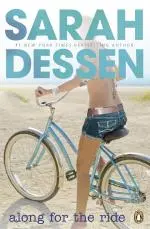 2. "Fearless" (Taylor’s Version) and "Along for the Ride" by Sarah Dessen
2. "Fearless" (Taylor’s Version) and "Along for the Ride" by Sarah Dessen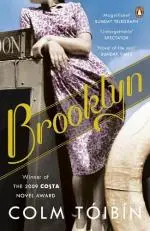 3. "Speak Now" and "Brooklyn" by Colm Tóibín
3. "Speak Now" and "Brooklyn" by Colm Tóibín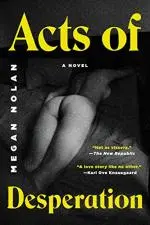 4. "Red" (Taylor’s Version) and "Acts of Desperation" by Megan Nolan
4. "Red" (Taylor’s Version) and "Acts of Desperation" by Megan Nolan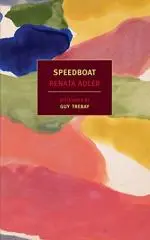 5. "1989" and "Speedboat" by Renata Adler
5. "1989" and "Speedboat" by Renata Adler 6. "Reputation" and "Nightbitch" by Rachel Yoder
6. "Reputation" and "Nightbitch" by Rachel Yoder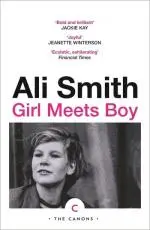 7. "Lover" and "Girl Meets Boy" by Ali Smith
7. "Lover" and "Girl Meets Boy" by Ali Smith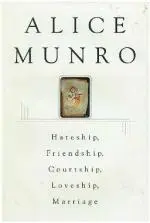 8. "Folklore" and "Hateship, Friendship, Courtship, Loveship, Marriage" by Alice Munro
8. "Folklore" and "Hateship, Friendship, Courtship, Loveship, Marriage" by Alice Munro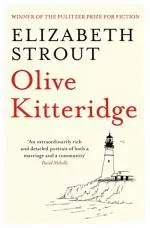 9. "Evermore" and "Olive Kitteridge" by Elizabeth Strout
9. "Evermore" and "Olive Kitteridge" by Elizabeth Strout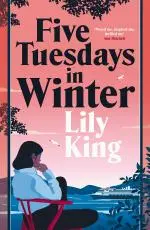 10. "Midnights" and "Five Tuesdays in Winter" by Lily King
10. "Midnights" and "Five Tuesdays in Winter" by Lily King







